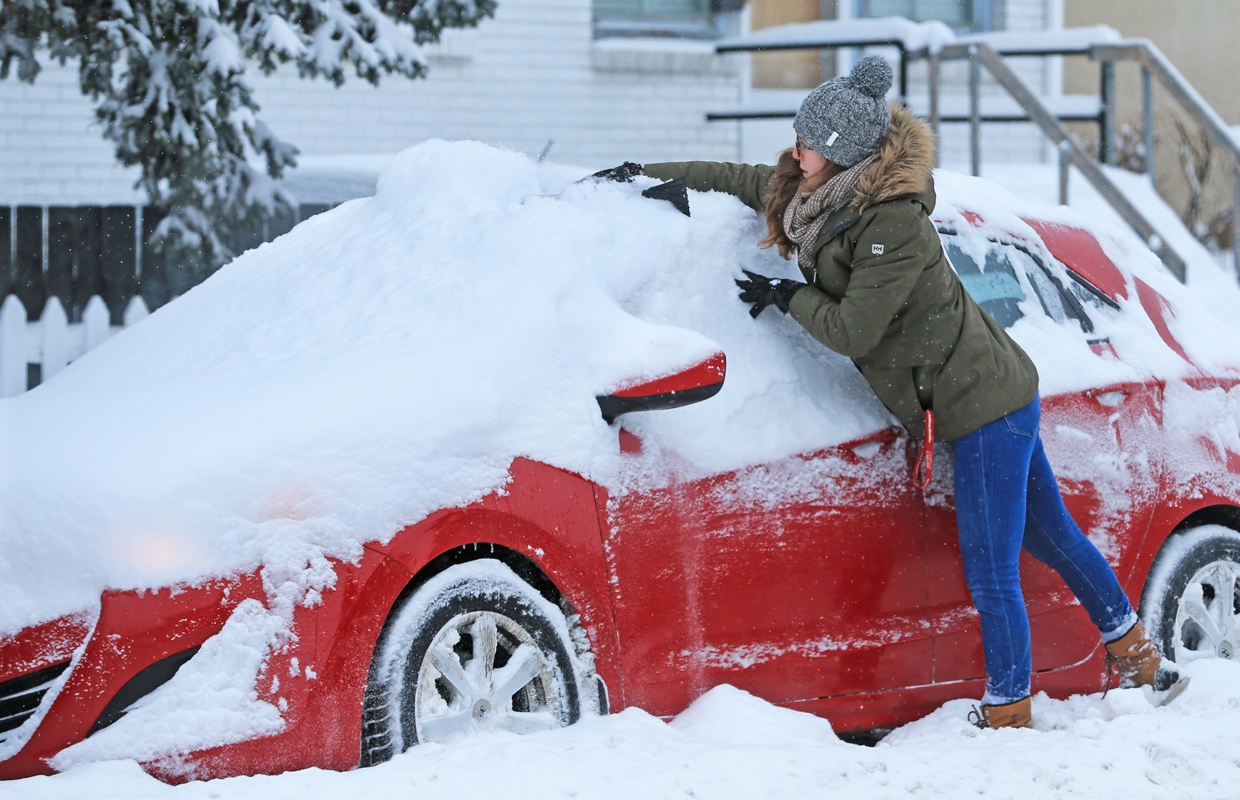In the winter, not all cars have the chance to go back to the garage at night. Because of the shallow temperatures, rigorous maintenance is necessary for those that stay outside. With a few simple preventative measures, you will allow your vehicle to get through these harsh months without a hitch.
1. Putting antifreeze in the windshield washer system.
To facilitate the quick cleaning of your windshield, you can :
Mix antifreeze with windshield washer fluid. This liquid will extend the life of your windshield.
Concoct an antifreeze liquid composed of ⅓ methylated spirits, ⅔ demineralized water, and a small amount of dish-washing liquid.
As a preventive measure, you can also:
Up to three times a week, wipe your windows with a cloth soaked in 90°C alcohol to prevent the gel from settling on them at night.
Spray a mixture of ¼ demineralized water and ¾ white vinegar on the dry windows of your car.
2. Soak the seals with glycerine.
If your doors creak when you open them, it means that the rubber gaskets shrink with the cold. This phenomenon can also be observed when closing the doors on vintage cars.
Protect the seals by rubbing them with glycerine.
You can also use spark plug wax on all doors.
Sprinkling talcum powder on the rubbers also works well because it absorbs moisture.
Note: prevention will save you the long minutes of defrosting your fingers in the air before you hit the road.
3. Wet the windshield wipers with white vinegar.

Windshield wipers suffer from the cold in many ways: cracks in the rubber, white coloration, etc.
To restore them to their original shine before they are irreparably damaged, wet them with a spray of window cleaner or white vinegar.
Important: never use your windshield wipers if snow has covered them (unless, of course, the car is moving and it starts to snow!). You risk twisting them, and the cold will make them even more fragile.
4. Immediately cover the paint chips.
If you want to keep your vehicle as long as possible or resell it at a fair price, you should not tolerate any rust stains.
Preventive treatment is applied to the entire body every three or four years to prevent corrosion.
Before winter, don’t forget to remove small paint chips and cover them up. Indeed, a chip subjected to humidity and salt will rust more quickly because the metal is directly exposed!
Good to know: for quick and easy paint touch-ups, use a body pencil!
5. Put antifreeze in its lock.
The locks work in winter… To avoid the nightmare of not being able to enter the key:
– Always keep an antifreeze spray handy (so that means not to put it in the glove box…)
– If you don’t have anything on hand, you can heat the key with a lighter before inserting it into the lock, provided you are patient.
As a precaution against frozen locks, you can stick a piece of adhesive tape or plaster, but it could tear easily with the cold.
Also, introducing very little glycerine will preserve your lock.
Stay posted. Cars and motors online tell you more here:
Remember to leave your comments below.

